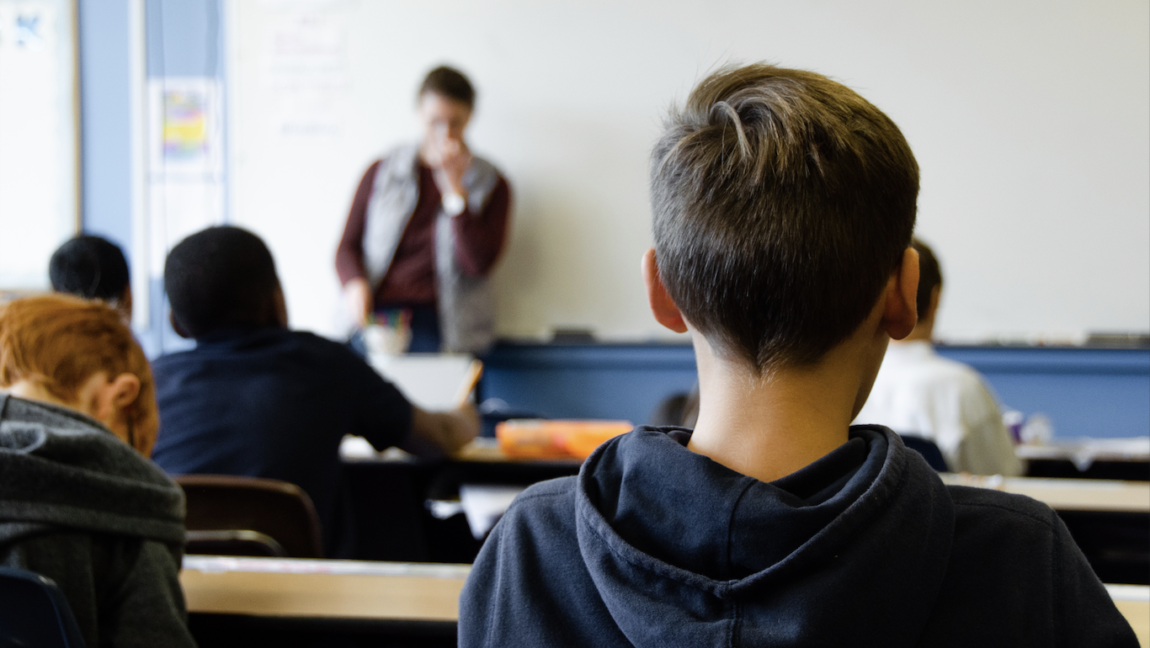Do we still need teachers?

“Are teachers still necessary in today’s learning environment?” Or… Do we even need teachers anymore?
This was the provocative question posed over a family lunch recently. As you can imagine (especially if you know that my family is filled with teachers), it led to much debate.
I should add that this question was asked by a teacher: one of the amazing, passionate, ‘born-to-be’ kind of teachers. He wasn’t advocating that teachers are obsolete and ready to be tossed out with the DVD player (seriously, bought one over a year ago and it’s still in its wrapping), but it is a notion he finds himself coming up against time and again and I suspect he was looking for fresh arguments to combat an ever-growing seed of doubt.
Yes, we live in a world of internet search engines and cell phones, where knowledge is literally at our fingertips. A world where any ardent “who played so and so in that movie” debate is instantly silenced by whipping out a phone and asking Google. Where students instantly call up mathematical formulae within seconds. And where you can learn any skill imaginable from a wikiHow article – from how to debone a fish, to how to stop a string of Christmas lights from flashing. (The latter certainly saved me from going completely loopy two Christmases ago.)
In the context of such a digital world, what is the need for the traditional purveyor-of-fact-and-knowledge – the teacher?
Below are some stolen pearls of wisdom from our Sunday dinner discussion – with a few of my own thoughts thrown in for free.
1. You can’t get passion from a Wikipedia article.
A physics teacher of mine used to enthuse about the beauty of wave-particle duality in such an animated fashion, that it made me think, “He really needs to get out more…”
But, against all my less-generous instincts, that thought was followed by, “Jeepers, there must be something to this if you can get that excited”.
Truly, one of the most valuable roles of the modern educator is to incite enthusiasm for knowledge. Passion is infectious – and necessary for learning. You are far more likely to remember something if you are truly passionate about it.
You can read a Wikipedia article on any number of Robert Frost poems, but it will never be as enthralling as when you watch your teacher’s eyes light up with excitement as they expertly weave together the beauty behind the language.
2. Teachers are curators of stories.
You could learn all you need about cost-benefit analysis from an economics website. But I personally only understood and remembered the intricacies of the theory because it was taught to me by my husband (a passionate economics lecturer) through the use of real-life anecdotes and humorous stories.
Great teachers have a way of drawing on narratives to make them come alive: they listen to people; ask questions; take note of the world around them; mentally store up useful anecdotes and then re-package them to make the knowledge more exciting.
I’d rather learn anything from a teacher like that than from a dry theoretical article.
3. Sheep Need Shepherds.
Have you ever been in one of those frustrating group discussions clearly not going anywhere? Or found yourself delving down a veritable rabbit warren of information on the Internet? (Like when you just wanted to find out how to remove red wine stains on the carpet and five hours later you are off to buy the wax crayons, malt vinegar and Coca-Cola that somebody’s aunt Bessie swears will do the trick?)
The truth is that the role of the teacher may well have changed – we are no longer required to simply convey fact – but now more than ever we are necessary as facilitators of learning. We are needed to guide discussions, set agendas or lead learners through the process of acquiring facts. We need teachers to draw the maps for us to follow, prompting us when we struggle and gently guiding us to our destinations.
Otherwise, all too often, we’d just be lost in a rabbit warren.
4. Distillation is an important process.
All good things like wine and whisky take time, effort and a certain amount of distillation. The same is true with knowledge.
There is no need for my students to become literary scholars, with a specialised knowledge of Romanticism, simply because they want to read and understand one of Keats’ poems. I, as their teacher, have already done that. I have a four-year degree in the subject with all the necessary specialised knowledge to draw upon in a forty-minute lesson.
If we valued our teachers’ specialised knowledge and abilities in distilling, selecting and packaging it for our purposes, we would see it as something we’d never get from just scanning the Internet.
5. Technology by itself is not sufficient.
Don’t get me wrong; I am not a Luddite trying to fight against technology in education out of some irrational fear that I am going to be replaced by a shiny silver robot. Quite the opposite. I love technology and get overly excited about the possibilities of harnessing its power in the classroom to aid my teaching. But that’s exactly how I see it: as a tool.
Technology by itself will never be a substitute for an exceptional teacher. Rather, used correctly, it can aid a teacher and make them exceptional. More than that though, we need educators to teach students how to critically sift through and critique the huge quantities of fact available to them: to think for themselves; form their own opinions; and be responsible, rational citizens of cyberspace (you just need to read the comments section of any news website to see the vital importance of this task).
So there you have it: a few of my initial thoughts and some insight into our dinner-time chatter. It is indeed a pressing issue – how to you respond to the question?



Sharon
Kids may not need teachers as a source of information much anymore, but that never was the most important role of good teachers.
Thea Garcia
This is a great article. I do a lesson with my 10th grade English students at the beginning of the year where we read articles and watch videos about traditional teaching methods and non-traditional methods. At the end of our research students are required to synthesize all the information we have gathered and write a paper about which method is superior. This article would be a great addition to this lesson.